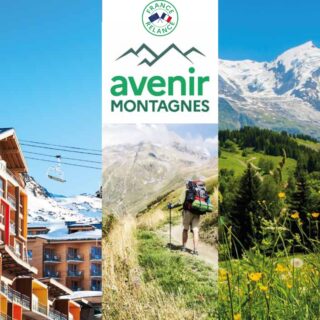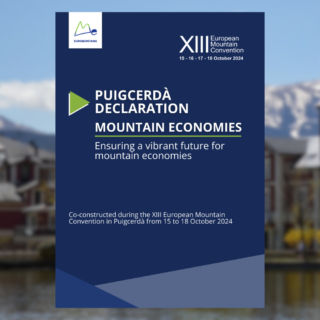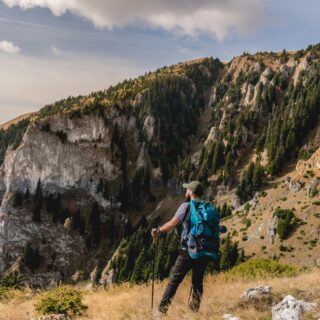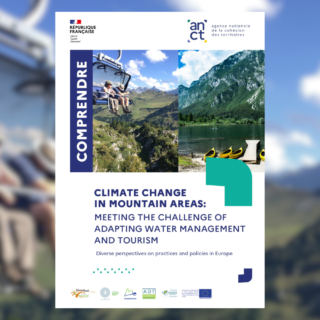This policy paper, endorsed by Euromontana is part of the TranStat project activities and tackles the subject of rethinking winter tourism in the Alps.
Sustainable tourism
Towards a European Mountain Pact? Auvergne-Rhône-Alpes leads the way
The French executive is backing the European Mountain Pact, which aims to keep mountain areas dynamic and vibrant, by ensuring that the specific characteristics of mountain areas are recognised in European policies, in all key sectors such as European funds, tourism, energy transition, etc.
Rethinking winter tourism – MountResilience Community of Practice launch event
This event is the first of a series of thematic webinars that will take place throughout the life of the MountResilience project and aims to explore how different regions are beginning to work on the transition to alternative tourism models.
‘Plan Avenir Montagnes’: earmarking resources for sustainable and resilient mountain tourism
The tourism sector is facing escalating challenges linked to climate change. Launched in 2021, the Plan for the Future of Mountains is a large-scale public policy aimed at supporting mountain areas in the green transition of the tourism sector.
Ensuring a vibrant future for mountain economies
More than 200 mountain stakeholders from all over Europe gathered around the theme of the future of economies and, in thematic workshops, co-constructed the Puigcerdà Declaration "Mountain economies: Ensuring a vibrant future for mountain economies".
European Court of Auditors highlights gaps in climate adaptation in the mountains
The European Court of Auditors has recently focused on adaptation in mountain areas in a report concluding that significant gaps and inconsistencies in implementation at the local level are hampering adaptation to climate change
TARS conference – Tourism and Rural Space in National and International Context
This 26th world conference, organised jointly by our member CE-MONT, the Institute for Economic and Social Research and the National Agency for Mountain Areas, aims to explore the challenges linked to tourism and rural areas through various themes ranging from rural development, agritourism and sustainable tourism to cross-border cooperation and economic growth.
Climate change adaptation in mountain areas: new Euromontana study out!
Euromontana, together with Eureka 21 and ADTconsult, has carried out for the French National Agency for Territorial Cohesion (Agence Nationale de la Cohésion des Territoires) the study “Climate change in mountain areas: meeting the challenge of adapting water management and tourism.
Climate change in mountain areas: meeting the challenge of adapting water management and tourism
This study focuses on the challenges of adaptation in water and tourism management in mountain areas. It analyses the policies and practices implemented in 5 European mountain countries
Latest news
- Rethinking rural prosperity: Euromontana contributes to new ESPON publication on “Thriving beyond numbers”
- Euromontana supports a new European manifesto for the governance of glaciers and connected resources
- The Autonomous Province of Trento joins Euromontana !
- New 2013–2023 study highlights the twin challenges of generational renewal and climate change in the Alps
- Third Forum with European pastoral schools: Shepherding Futures







